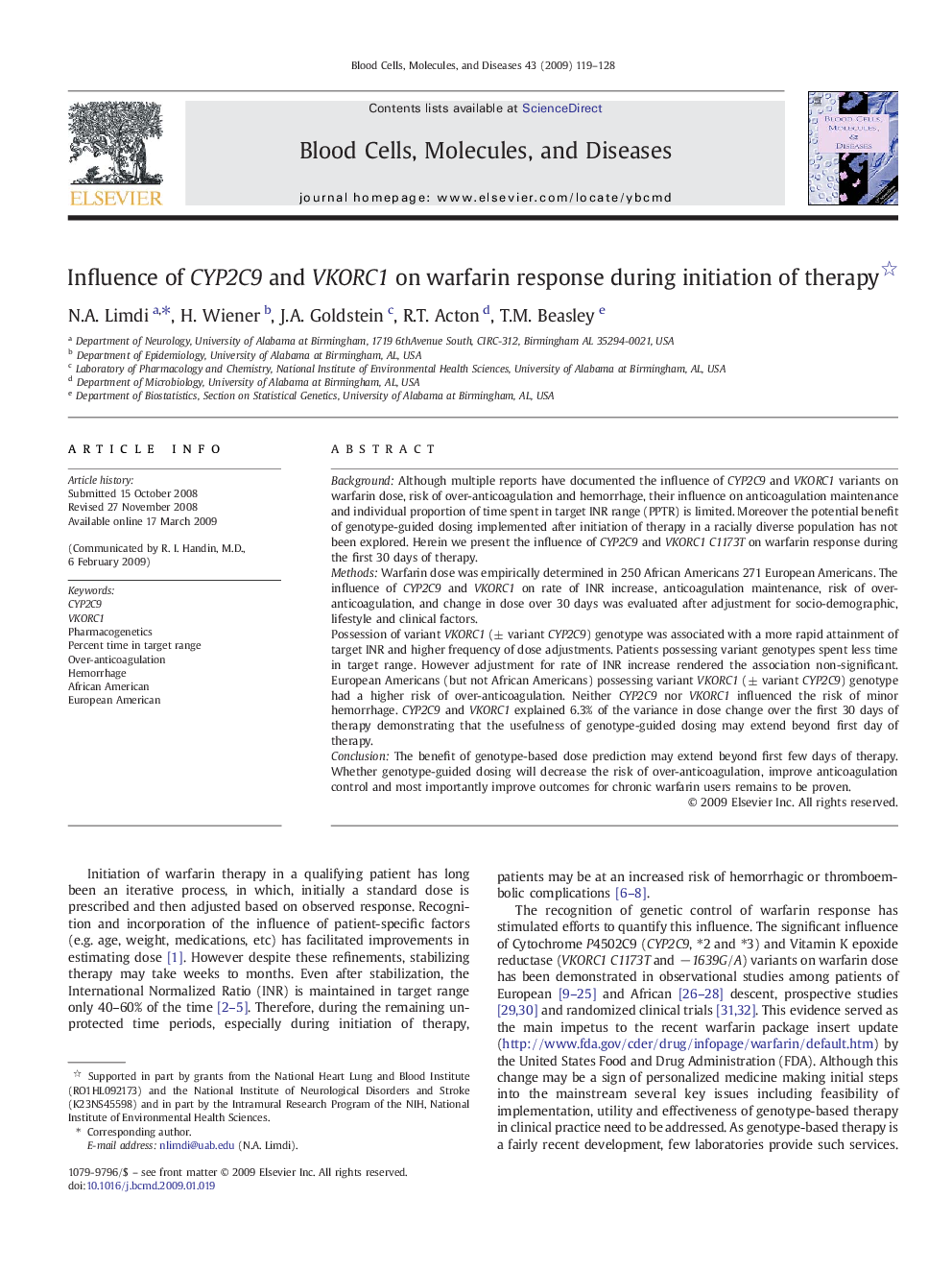| کد مقاله | کد نشریه | سال انتشار | مقاله انگلیسی | نسخه تمام متن |
|---|---|---|---|---|
| 2827654 | 1162457 | 2009 | 10 صفحه PDF | دانلود رایگان |

BackgroundAlthough multiple reports have documented the influence of CYP2C9 and VKORC1 variants on warfarin dose, risk of over-anticoagulation and hemorrhage, their influence on anticoagulation maintenance and individual proportion of time spent in target INR range (PPTR) is limited. Moreover the potential benefit of genotype-guided dosing implemented after initiation of therapy in a racially diverse population has not been explored. Herein we present the influence of CYP2C9 and VKORC1 C1173T on warfarin response during the first 30 days of therapy.MethodsWarfarin dose was empirically determined in 250 African Americans 271 European Americans. The influence of CYP2C9 and VKORC1 on rate of INR increase, anticoagulation maintenance, risk of over-anticoagulation, and change in dose over 30 days was evaluated after adjustment for socio-demographic, lifestyle and clinical factors.Possession of variant VKORC1 (± variant CYP2C9) genotype was associated with a more rapid attainment of target INR and higher frequency of dose adjustments. Patients possessing variant genotypes spent less time in target range. However adjustment for rate of INR increase rendered the association non-significant. European Americans (but not African Americans) possessing variant VKORC1 (± variant CYP2C9) genotype had a higher risk of over-anticoagulation. Neither CYP2C9 nor VKORC1 influenced the risk of minor hemorrhage. CYP2C9 and VKORC1 explained 6.3% of the variance in dose change over the first 30 days of therapy demonstrating that the usefulness of genotype-guided dosing may extend beyond first day of therapy.ConclusionThe benefit of genotype-based dose prediction may extend beyond first few days of therapy. Whether genotype-guided dosing will decrease the risk of over-anticoagulation, improve anticoagulation control and most importantly improve outcomes for chronic warfarin users remains to be proven.
Journal: Blood Cells, Molecules, and Diseases - Volume 43, Issue 1, July–August 2009, Pages 119–128